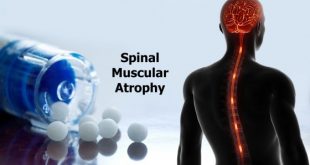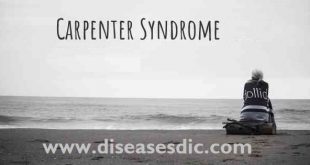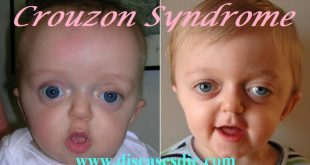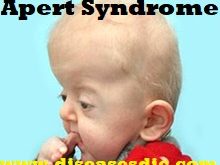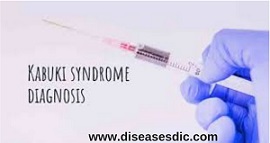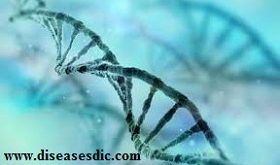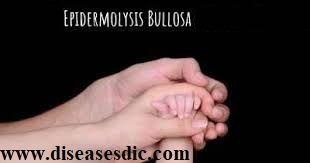Definition Cardiofaciocutaneous Syndrome is a rare genetic condition that typically affects the heart (cardio-), facial features (facio-) and skin (cutaneous). It is seen with equal frequency in males and females and across all ethnic groups. Children with CFC syndrome may have certain features that suggest the diagnosis, such as relatively …
Read More »Spinal Muscular Atrophy – Types, Diagnosis, and Treatment.
Description Spinal muscular atrophy (SMA) is a group of inherited disorders characterized by a loss of certain nerve cells in the spinal cord called motor neurons or anterior horn cells. Motor neurons receive the nerve impulses transmitted from the brain to the spinal cord (brainstem) and, in turn, transmit the …
Read More »Carpenter Syndrome – Causes, Symptoms, and Treatment.
Description Carpenter syndrome is a condition characterized by the premature fusion of skull bones (craniosynostosis); finger and toe abnormalities; and other developmental problems. The features in affected people vary. Craniosynostosis can give the head a pointed appearance; cause asymmetry of the head and face; affect the development of the brain, …
Read More »Crouzon Syndrome – Symptoms, Treatment, and Prevention.
Definition Crouzon syndrome is a rare genetic disorder, also known as craniofacial dysostosis, It is a form of craniosynostosis, a condition in which there is a premature fusion of the fibrous joints (sutures) between certain bones of the skull. The sutures allow an infant’s head to grow and expand. Eventually, …
Read More »Apert Syndrome – Symptoms, Causes, and Diagnosis.
Description Apert syndrome, also known as “acrocephalosyndactyly”. It is a genetic disorder in which certain skull bones fuse together prematurely, which is known as craniosynostosis. This early fusion of the skull prevents it from developing normally and causes the child to have an unusual head and face shape. Children with …
Read More »Kabuki Syndrome – Description, Causes, and Treatment.
Description Kabuki syndrome is a rare, multisystem disorder characterized by multiple abnormalities including distinctive facial features, growth delays, varying degrees of intellectual disability, skeletal abnormalities, and short stature. A wide variety of additional symptoms affecting multiple different organ systems can potentially occur. The specific symptoms associated with Kabuki syndrome can …
Read More »Velocardiofacial Syndrome – Definition, Treatment, and Prevention.
Definition Velocardiofacial syndrome, or VCFS, is a complex syndrome that has been associated with more than 30 different characteristics, including defects of the palate, heart defects, learning disabilities and distinct facial features. The severity of VCFS and the characteristics that appear vary widely among individuals. It’s inherited in an autosomal …
Read More »Epidermolysis Bullosa (EB) – Definition, Causes, and Treatments.
Definition Epidermolysis Bullosa (EB) is a group of rare genetic skin conditions, which is characterized by extremely fragile skin and recurrent blister formation, resulting from minor mechanical friction or trauma. The skin has two layers; the outer layer is called the epidermis and the inner layer called the dermis. Normally, …
Read More » Diseases Treatments Dictionary This is complete solution to read all diseases treatments Which covers Prevention, Causes, Symptoms, Medical Terms, Drugs, Prescription, Natural Remedies with cures and Treatments. Most of the common diseases were listed in names, split with categories.
Diseases Treatments Dictionary This is complete solution to read all diseases treatments Which covers Prevention, Causes, Symptoms, Medical Terms, Drugs, Prescription, Natural Remedies with cures and Treatments. Most of the common diseases were listed in names, split with categories.

